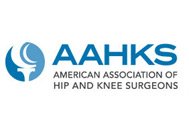Healthcare News
How to treat hip bursitis
Hip bursitis is inflammation of the bursae of the hips. Treatment usually involves anti-inflammatory medication, physical therapy, and rest.
It does not take much weight gain to raise odds for knee trouble
A person does not have to pack on very many extra pounds before their risk of needing a knee replacement increases substantially, a new evidence review has found.
Orthopedic surgery patients do fine without opioid painkillers, according to new study
Patients can recover from orthopedic surgery just as well without using opioid-based painkillers, says a McMaster University and Hamilton Health Sciences (HHS) study published by the Journal of the American Medical Association (JAMA).
Progression of femoroacetabular impingement in contralateral hip
New research has uncovered which factors are important when tracking the progression of disease in the contralateral hip of patients with symptomatic femoroacetabular impingement. FAI is one of the most common causes of hip osteoarthritis, but the factors controlling the progression of it are still not completely understood.
Opioid-Sparing Protocol Cuts Opioid Use After Arthroscopy
Postoperative consumption of opioids over six weeks reduced with multimodal opioid-sparing protocol for managing pain following arthroscopic shoulder or knee surgery
Groin Pain: Causes and Treatment
There are many causes of groin pain, or discomfort in the area where your abdomen meets your legs. The most common ones are muscle, tendon, and ligament strains, which often affect athletes but can happen to anyone.But other things—such as an inguinal (groin) hernia, hip fracture, hip arthritis, and even kidney stones—can directly or indirectly cause groin pain too.
Increased CXCL9 Level Linked to Increased Hip Fracture Risk in Men
The researchers found that in men, but not in women, increasing CXCL9 levels were associated with an increasing risk for hip fracture. The odds ratios in the highest quartile compared with the lowest quartile were 10.35 (95 percent confidence interval, 1.90 to 56.39) and 1.46 (95 percent confidence interval, 0.59 to 3.60) in men and women, respectively.
Walking Can Reduce Knee Pain for People Who Have Arthiritis
According to a recent study published in Arthritis & Rheumatology and conducted by Baylor College of Medicine researchers, walking may help people age 50 and older who have knee osteoarthritis, the most prevalent kind of arthritis, reduce frequent pain.
Can supplements or diet reduce symptoms of arthritis? Here`s what the evidence says
It is not surprising some people want to try different diets, supplements or therapies to see if they alleviate symptoms or help them gain a sense of control over their condition. So what does the evidence say about supplements?
13 Hip Stretches To Add To Your Workout Routine
If you feel like your back has gone out, you may have your hips to blame. Tight hip flexors affect your lumbar spine, contributing to your risk of lower back pain.











